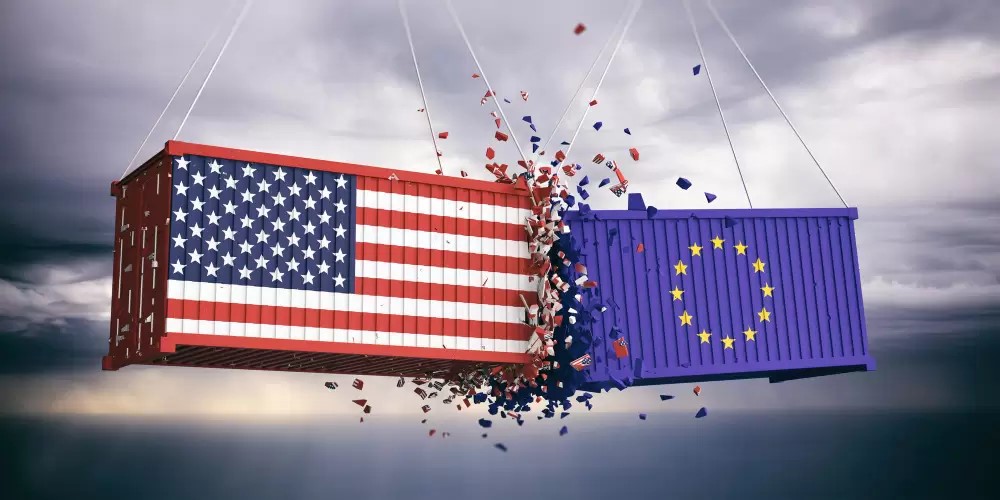
Transatlantic Trade Wars, No Party truly wins.
The recent tariffs imposed by Donald Trump on Canada, Mexico, and China introduce significant economic and geopolitical challenges that could escalate into a broader trade war with far reaching consequences. While the administration justifies these tariffs as necessary to address national security concerns such as illegal immigration and drug trafficking, the economic reality suggests they could backfire, leading to higher consumer prices, supply chain disruptions, and retaliatory measures that harm all parties involved.
A key risk in this situation is the potential for escalation. Trade wars rarely produce clear winners; instead, they tend to result in a cycle of retaliatory tariffs that increase costs for businesses and consumers alike. Canada and Mexico have already signaled their intent to respond, and China has a history of imposing countermeasures, particularly targeting key U.S. industries like agriculture and technology. If these nations introduce tariffs on American exports, sectors such as manufacturing and farming could suffer significant losses, mirroring the economic fallout of Trump’s previous trade war with China.
Beyond direct retaliation, a prolonged trade war would disrupt global supply chains. Modern trade is deeply interconnected, with industries depending on imports for raw materials, intermediate goods, and components. For instance, U.S. automobile manufacturers rely heavily on parts imported from Mexico and Canada. Tariffs on these components will drive up production costs, potentially leading to higher vehicle prices for consumers or forcing companies to cut jobs to maintain profitability. Similarly, Canadian energy producers and Mexican electronics manufacturers could struggle to maintain competitive pricing due to increased export costs.
Another critical concern is the uncertainty that trade wars create, leading to weakened investor confidence and market volatility. Financial markets have historically reacted negatively to tariff announcements, as businesses face unpredictable costs and potential losses. The uncertainty surrounding trade policies can slow business expansion and investment, ultimately dragging down economic growth. Given the interconnected nature of global markets, the effects of this trade dispute would not be confined to the U.S., Canada, Mexico, or China other economies with trade ties to these nations could also experience negative spillover effects.
Beyond economic implications, a trade war with Canada and Mexico could strain diplomatic relations. Both nations are not just economic partners but also key allies in security and regional stability. Increased trade tensions could spill over into other areas of cooperation, weakening North American economic and strategic ties. Similarly, China may use the trade war as an opportunity to diversify its trade partnerships, further reducing its reliance on the U.S. market and strengthening its economic influence elsewhere.
The idea that any single country will emerge victorious from this trade war is a misconception. Tariffs are not merely economic tools; they are politically charged instruments that often lead to unintended consequences. While the Trump administration presents these tariffs as a tool to strengthen the U.S. economy, the reality is that all sides will bear economic costs. Higher consumer prices, supply chain disruptions, reduced market access, and weakened diplomatic ties could outweigh any intended benefits and collectively diminish growth prospects for the U.S., Canada, Mexico, and China alike.
If history has taught us anything, it is that trade wars are not won, they are merely endured, often at great economic and strategic cost. Rather than resorting to tariff escalations that risk destabilizing global trade, a more prudent approach would involve diplomatic engagement, targeted trade negotiations, and strategic policy interventions that address legitimate economic grievances without inflicting collateral damage on businesses, consumers, and international alliances. In a world where economic interdependence defines prosperity, cooperation rather than confrontation remains the most viable path forward.
Maryjane Eze is the Chief of Staff to the Executive Chairman of the Sixteenth Council.



